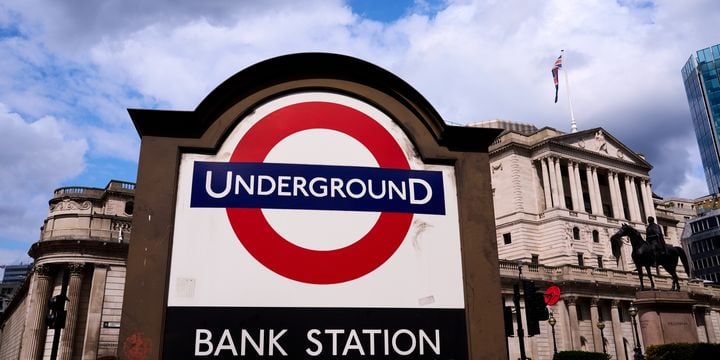Business
Labour Claims Five Consecutive Cuts by Bank of England

The Labour Party has asserted that the Bank of England has reduced interest rates five consecutive times since it assumed power. This claim comes as part of the party’s broader narrative regarding economic management under its leadership. The party stated, “Interest rates have now been cut five times in a row since Labour came into power,” reflecting a significant point in their economic policy discussions.
To assess the accuracy of this assertion, it is essential to examine the actual rate changes by the Bank of England. Since the Labour government was elected, the central bank has indeed made adjustments to interest rates on several occasions. However, a closer look reveals that the Bank has held rates steady on four out of the nine meetings it has had since the Labour government took office.
Understanding Interest Rate Decisions
The Bank of England, based in London, plays a critical role in managing the UK’s monetary policy. Interest rate decisions are pivotal as they can influence inflation, economic growth, and overall financial stability. The Bank’s Monetary Policy Committee meets regularly to review economic conditions and make necessary adjustments.
In recent months, fluctuations in inflation and economic performance have prompted discussions around interest rates. The claims made by the Labour Party suggest a consistent downward trend in rates, which may not fully encapsulate the broader context of monetary policy in the UK.
The current interest rate stands at 4.5%, a figure that reflects the Bank’s attempts to balance economic growth with inflationary pressures. The central bank’s decisions are guided by extensive economic analysis and forecasts, which take into account various factors, including consumer spending, wage growth, and global economic trends.
The Political Implications
The Labour Party’s focus on interest rates serves a dual purpose: it aims to highlight its economic management credentials while also addressing public concerns about the cost of living. By framing the narrative around interest rate cuts, the party seeks to convey a sense of proactive governance in response to economic challenges.
Critics argue that while rate cuts can provide temporary relief, they do not address the underlying issues facing the economy. The broader challenges include energy prices, supply chain disruptions, and the lasting effects of the pandemic on various sectors.
In summary, while the Labour Party’s assertion of five consecutive interest rate cuts draws attention, a more nuanced view reveals that the Bank of England has maintained rates during significant periods. As the political landscape continues to evolve, the implications of these monetary policy decisions will undoubtedly remain a focal point in discussions surrounding the UK economy.
-

 Health3 months ago
Health3 months agoNeurologist Warns Excessive Use of Supplements Can Harm Brain
-

 Health3 months ago
Health3 months agoFiona Phillips’ Husband Shares Heartfelt Update on Her Alzheimer’s Journey
-

 Science2 months ago
Science2 months agoBrian Cox Addresses Claims of Alien Probe in 3I/ATLAS Discovery
-

 Science2 months ago
Science2 months agoNASA Investigates Unusual Comet 3I/ATLAS; New Findings Emerge
-

 Science1 month ago
Science1 month agoScientists Examine 3I/ATLAS: Alien Artifact or Cosmic Oddity?
-

 Entertainment5 months ago
Entertainment5 months agoKerry Katona Discusses Future Baby Plans and Brian McFadden’s Wedding
-

 Science1 month ago
Science1 month agoNASA Investigates Speedy Object 3I/ATLAS, Sparking Speculation
-

 Entertainment4 months ago
Entertainment4 months agoEmmerdale Faces Tension as Dylan and April’s Lives Hang in the Balance
-

 World3 months ago
World3 months agoCole Palmer’s Cryptic Message to Kobbie Mainoo Following Loan Talks
-

 Science1 month ago
Science1 month agoNASA Scientists Explore Origins of 3I/ATLAS, a Fast-Moving Visitor
-

 Entertainment2 months ago
Entertainment2 months agoLewis Cope Addresses Accusations of Dance Training Advantage
-

 Entertainment3 months ago
Entertainment3 months agoMajor Cast Changes at Coronation Street: Exits and Returns in 2025









